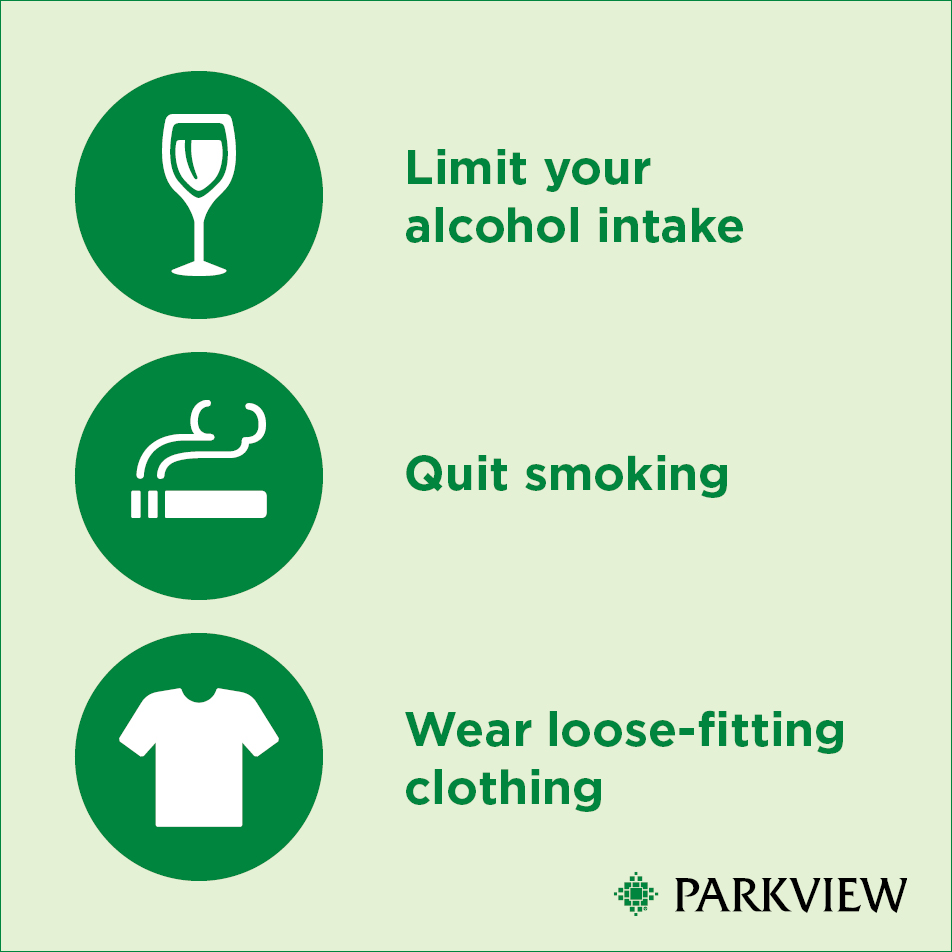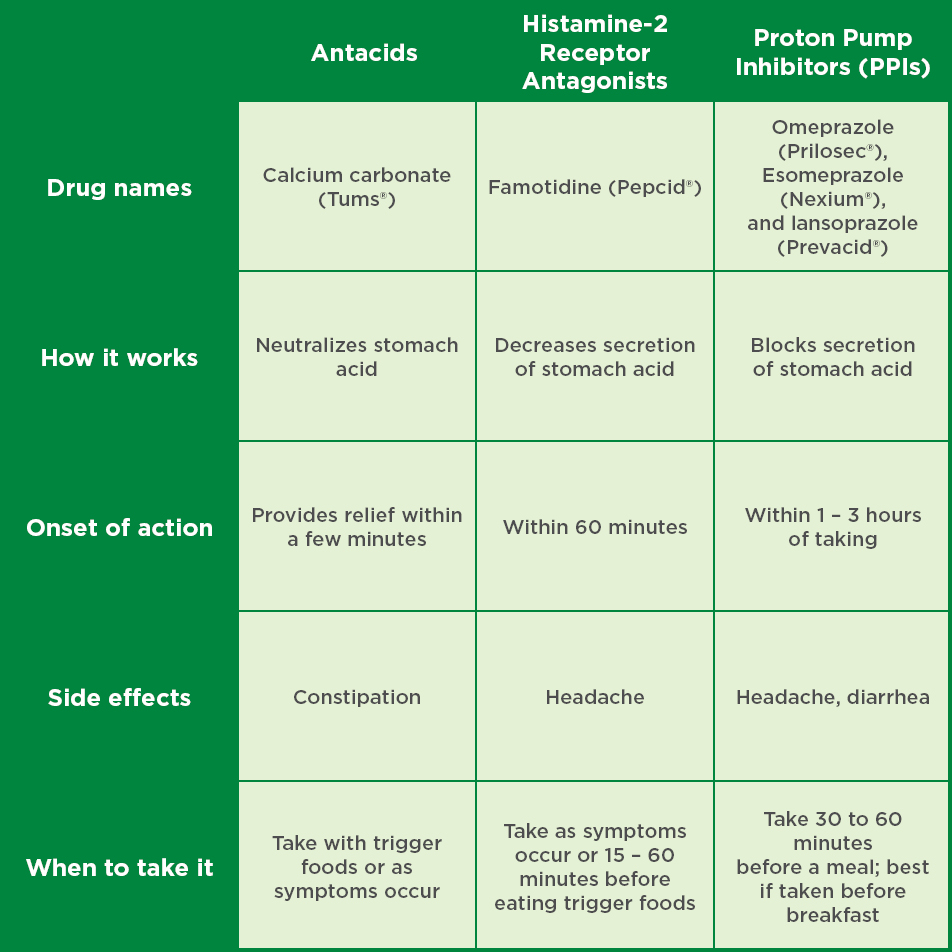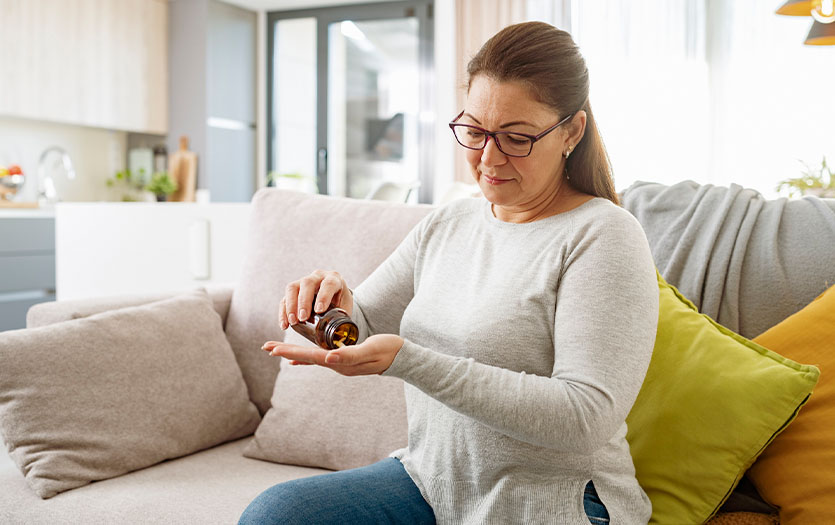
This post was written by Curt Stump, PharmD, Parkview Health.
With Christmas right around the corner, we are all looking forward to family traditions, baking sweet treats and eating a lot of delicious food! However, if you suffer from acid reflux or Gastroesophageal Reflux Disease (GERD), the pleasure you get from eating may quickly lead to hours of discomfort depending on what food you put on your plate. Follow these helpful guidelines to reduce or prevent discomfort during the holiday season.
Avoiding triggers
One of the two major strategies to avoid heartburn is to focus on what you eat. By avoiding or limiting your intake of trigger foods, you can minimize your discomfort. It’s important to note that not everyone has the same trigger foods, but here is a handful of common culprits:
- Chocolate and peppermint
- Spicy foods, like those with tomato sauces
- Carbonated and caffeinated drinks
- Dishes containing garlic or citrus fruits
Alternative strategies
The second major strategy to avoid heartburn focuses on how and when you eat.
- How: You are more likely to experience heartburn when you eat quickly. Remember to savor your meal and take your time! It’s also important to portion your meal, as overeating can lead to heartburn or discomfort. Try a few bites of everything as opposed to getting several helpings of trigger foods.
- When: If possible, try to eat an early dinner. When you lie down, it becomes more difficult for your body to digest food. The general rule is to eat at least one to two hours before bed.
Other tips to avoid heartburn
If you have already tried some of the above methods without success, here are a few additional strategies that may help you.

Over-the-counter treatments
If you have tried lifestyle modifications but are still experiencing symptoms, there are some over-the-counter medications that may relieve your discomfort. Refer to the table below to learn more about some of the medications you can get from your local pharmacy. Keep in mind that not all pharmacies may be open on Christmas day, so try to get these medications in advance.

When to contact your provider
If lifestyle modifications and/or over-the-counter agents are not working for you after two weeks, make an appointment with your doctor for further evaluation. You should also talk with your doctor if you have any alarming symptoms, such as painful swallowing, frequent nausea and vomiting, or unintentional weight loss.



